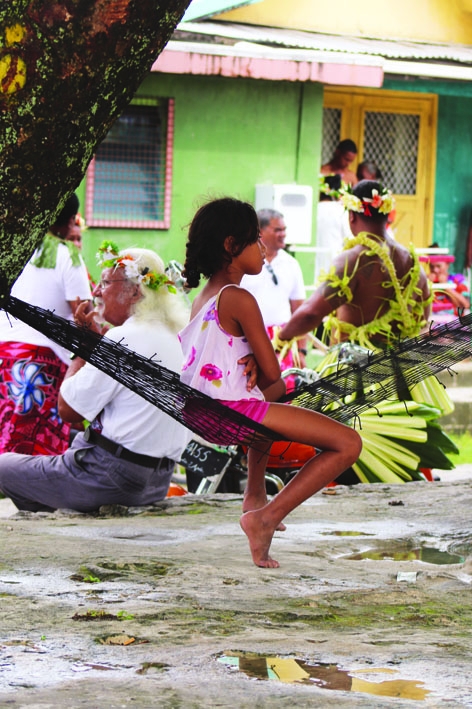CLOSE to a year after COP23 in Bonn and the Pacific-led talks on climate change, atoll communities are no closer to a solution to the danger posed by rising sea levels.
According to the United States Geological Survey most atolls will be uninhabitable by 2030.
If that is true in the Pacific, Kiribati, Tokelau, Tuvalu and the Republic of the Marshall Islands will no longer exist in just over a decade. Even if they will exist, it is unlikely that they will be able to support human habitation.
Yet the global community has made no significant progress to enact laws or conventions which will allow for a possible 500,000 displaced people to receive justice and move to host countries with dignity.
Despite Fijian Prime Minister, Rear Admiral (Retired) Frank Bainimarama, assuming the chair of the world’s lead climate change event, no real progress was made to ensure that Pacific concerns were placed at the fore in Bonn.
Instead, the event became a showcase for Fijian culture and its national development plan.
No consultations were held prior to the summit with the leaders of the atoll communities who stand at the frontline of climate change – rising sea levels, disappearing coastlines, salt water intrusion into water tables, drought and loss of crops.
Even during the three-week COP23 event, consultation and discussion between Pacific delegations was virtually non-existent, despite approaches from Tuvaluan Prime Minister, Enele Sopoaga, to the presidency.
Tuvalu’s diplomats reported to their PM that Bainimarama drank yaqona (kava) with actor Arnold Schwarzenegger and sent Agriculture Minister, Inia Seruiratu, to meet Sopoaga.
Faced with limited options, Sopoaga enlisted the support of former Kiribati President, Anote Tong.
Together, the men – now known at the Pacific’s climate warriors – fronted a summit on Funafuti to address the plight of small island states, particularly atolls, in the fight against global warming.
Sopoaga is intent on placing a resolution at the 73rd Session of the United Nations General Assembly to protect people affected by climate change.
The resolution will be based on the Warsaw International Mechanism for loss and damage associated with climate change impacts, including extreme events and slow onset events.
Loss and Damage Mechanism fulfills the role under the United Nations Convention on Climate Change of promoting implementation of approaches to address loss and damage associated with the adverse effects of climate change in a comprehensive, integrated and coherent manner.
Speaking in Tuvalu in June, Sopoaga said his country and other Pacific atolls were suffering the consequences of the carbon emissions of large nations.
“We must have a system in which the polluter pays – we cannot let them off the hook and we must continue to espouse this position,’’ he said.
…..to read more buy your personal copy at
